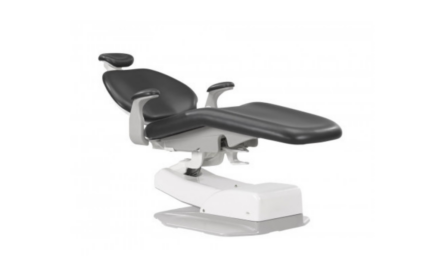Sponsored Content: Henry Schein One — Enterprise
Why centralizing support functions is a best practice for leading national DSOs.
As a dental service organization, do you know your VMGO (Vision, Mission, Goals and Outcome)? Long-time Strategic Customer Success Manager and former Certified Trainer Karina Santos believes VMGO is an important first step in the process to determine how best to partner with group practices and DSOs on their technology solutions. “Once we know [their VMGO], then we can align our teams to help meet their goals and what’s important to them,” she said.
Whatever your desired VMGO, centralization is a must. Without centralized control, your practice growth could be hampered by many challenges and headaches: duplicate patient records; siloed data; multiple appointment books; and location-specific billing and claims. In a recent webinar “Unpacking the Centralization Secrets of Nationals DSOs,” Santos and David Danielson, Senior Product Manager, Henry Schein One, discussed best practices in centralization that they see from working with national DSOs.
VMGOs vary depending on the organization. One DSO may want to enable data sharing to improve health outcomes for patients. Another DSO may want efficient business processes driven by technology to provide consistent, quality outcomes in order to grow and scale.
One best practice involves centralizing support functions, Santos and Danielson said. “Most of the large national DSOs we work with choose how to support their dental offices by relieving administrative functions from the dental offices, so that the clinical team can focus on their patient care,” said Santos. DSO leaders decide what support functions would be a priority for them based off their vision, mission, goals and outcomes.
Examples of key support functions include:
- Insurance/Billing
- Call Center
- Marketing/Website
- Clinical Excellence
- IT Support
Revenue cycle management support is also a popular function that leading DSOs want to centralize to achieve their goals. “A lot of national DSOs choose to support their dental offices by being the secondary line of support to collections and AR follow-up,” said Santos.
“This is such a hot topic, because we know that organizations that centralize RCM see efficiency improvements,” said Danielson. “We know it’s measurable. We know that it takes less resources to scale.” The exact numbers vary due to state regulations, complexity of claims and other factors, but some DSOs may save a headcount for every three locations, while others may save it for every five.
Indeed, the list of support categories that can see efficiencies through centralization is long – operations, recruiting, hiring, and even training. For instance, Danielson said one DSO with upwards of 100 locations freed up their local office managers to focus more on clinical areas by centralizing its training via a small department of people. In the same spirit, many successful national DSOs are choosing to eliminate multiple phone calls or distractions from their dental offices by having a call center handle all the incoming phone calls for the dental practices.
Whatever the support service, Danielson says, “what’s really important is, we know consistently that people get more efficient when they centralize.”
Henry Schein One’s Dentrix Enterprise is an industry-leading solution that helps DSOs of all shapes and sizes centralize not only their support functions, but their data, Standard Operating Procedures, and more. To learn more, visit dentrixenterprise.com
To learn more from Santos and Danielson on effective strategies for centralizing your data and processes view the webinar “Centralization Secrets of National DSOs”





